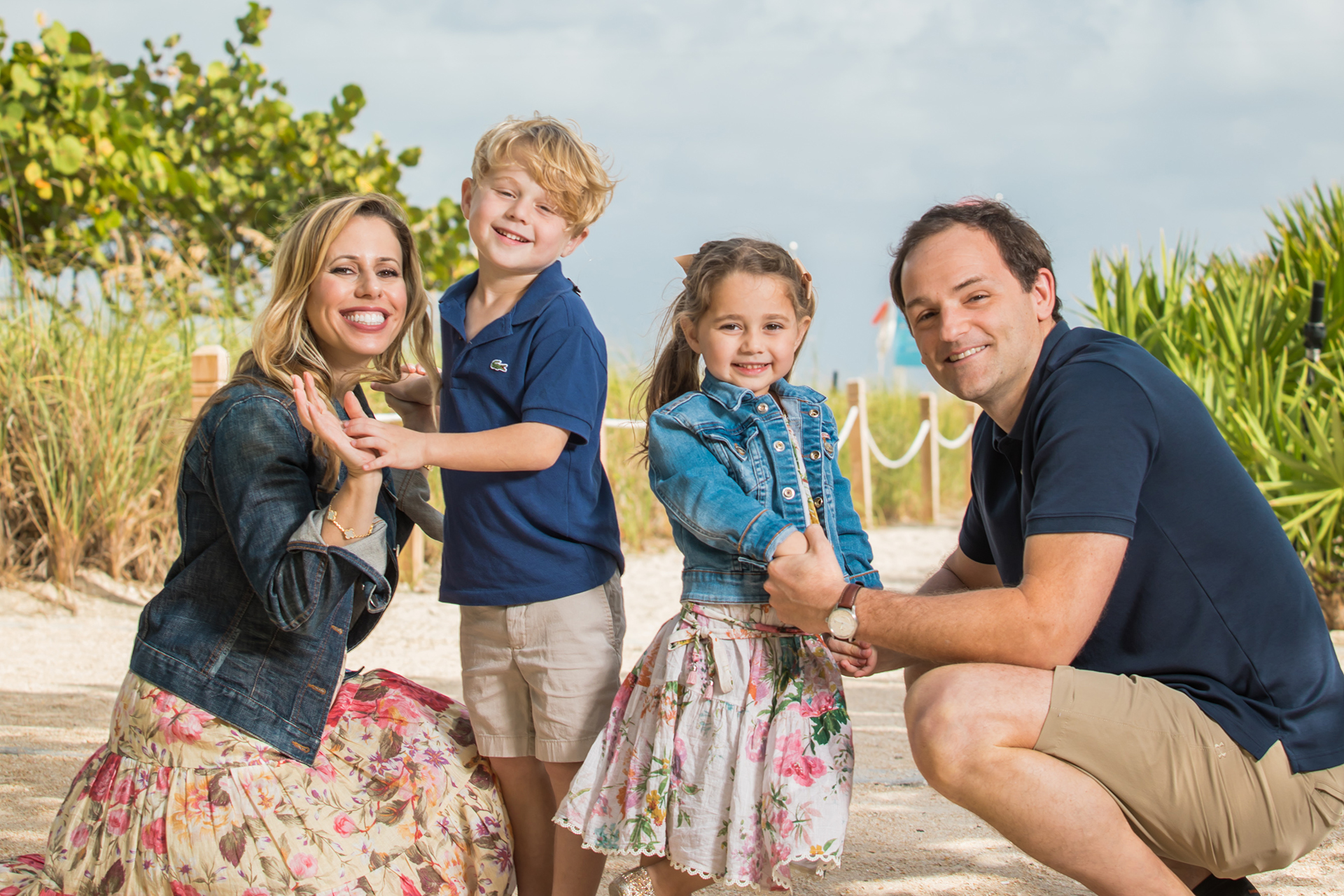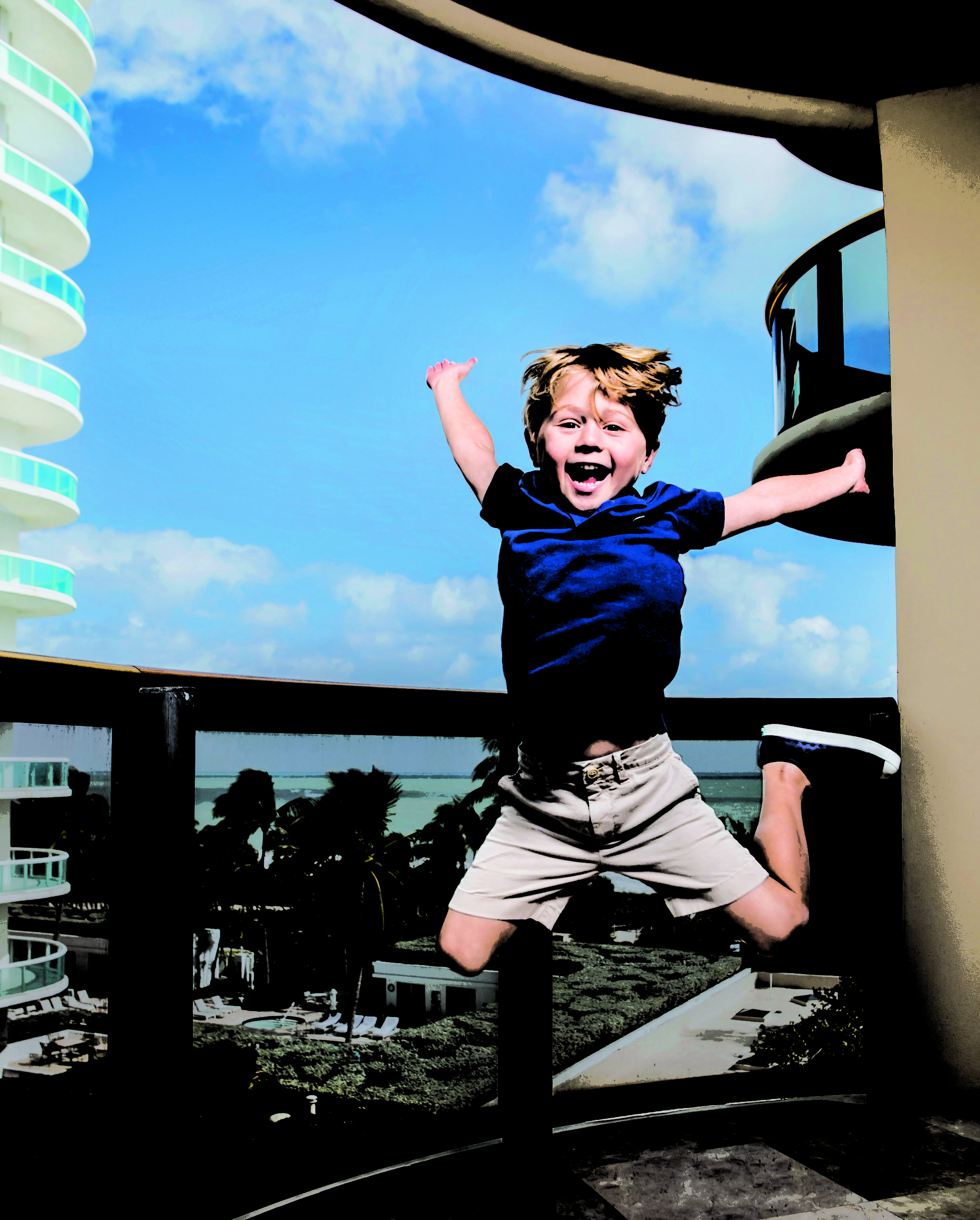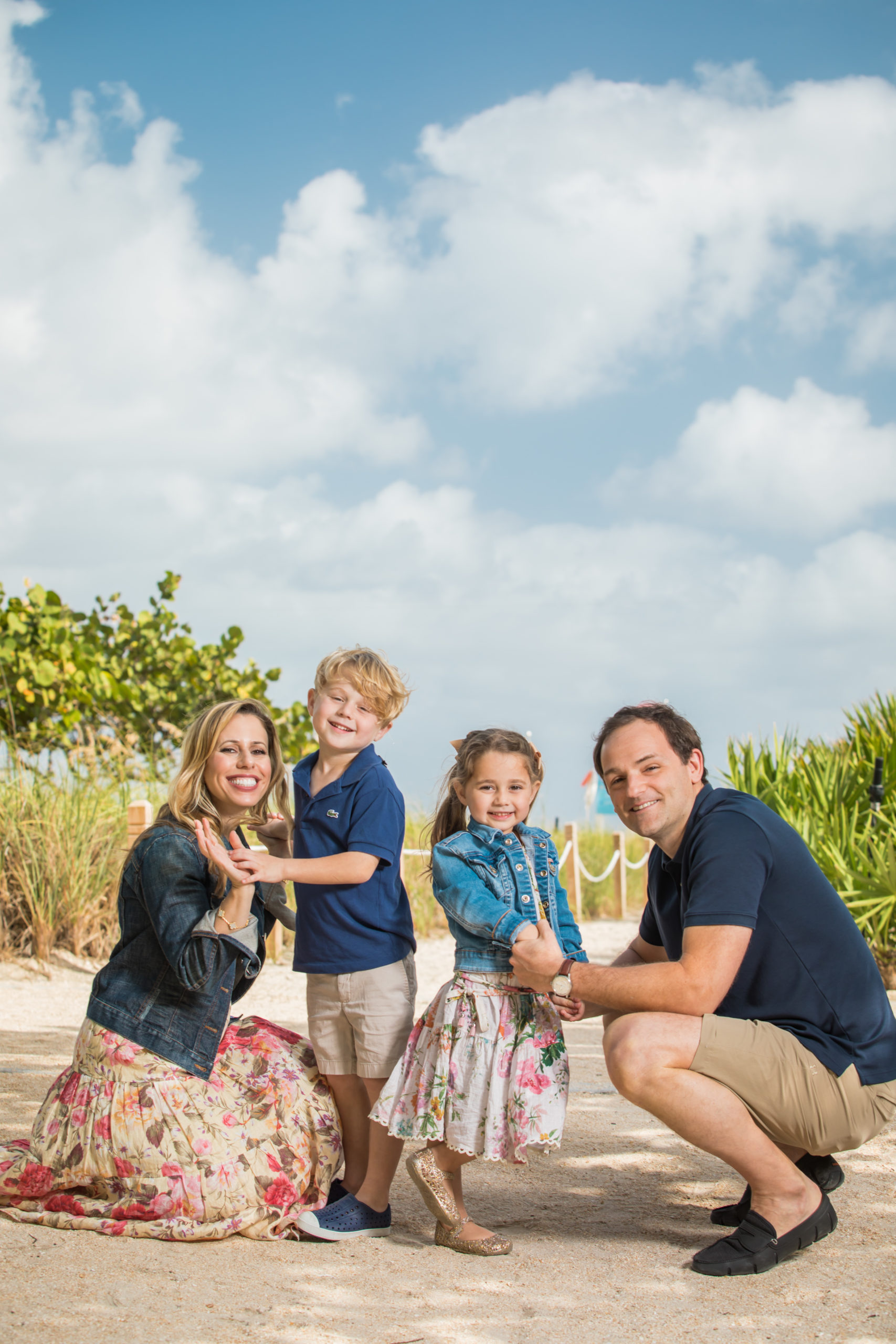From Silence, Hope
How one family’s gift eliminated the wait for cochlear implant parts
By Cathy Alton
Photographs by Sonya Revell
Michelle and Matan Ben-Aviv were thrilled when their son Sam was born six years ago. But when he was just a few days old, they received some shocking news from specialists at the UHealth Ear Institute at the Miller School of Medicine’s Department of Otolaryngology: Sam was profoundly deaf.
They immediately started the months-long process of having Sam evaluated for bilateral cochlear implantation. Cochlear implants provide access to sound to those who are severely hearing-impaired and offer the best opportunity for normal speech and language development in children.
During their visits to the Ear Institute’s Kids Hear Now Cochlear Implant Family Resource Center, they talked to other parents, many of whom told them about an unexpected challenge: replacing cochlear implant parts when they break. Implants are made of many parts, from batteries to microphones and high-tech speech processors. If just one part breaks, the child is plunged into silence — a frightening and confusing change.
The approval process with many insurance companies can take months, and some parts cost as much as $9,000 to replace.
Help for Families in Need
“We saw this happen again and again to so many families,” Michelle Ben-Aviv said. “We had developed a close relationship with the UHealth Ear Institute’s doctors, so when they approached us with an idea — a bank of parts that would be immediately available to children who needed them — we knew we had to do something to solve this problem.”
Thanks to a generous gift from the Ben-Avivs, the Sharing Auditory Miracles fund was created. Now families who need a small part or battery can pick it up at the institute at no cost.
“The Ben-Aviv family gift is so important to our cochlear implant families,” said Fred F. Telischi, M.E.E., M.D. ’85, chair of the Department of Otolaryngology. “The loaner bank quickly brings a child back to the hearing world and avoids prolonged interruption of auditory perception.”
“I think if people understood that a simple $200 part could lift a child out of silence, they would want to help,” Michelle Ben-Aviv said.





